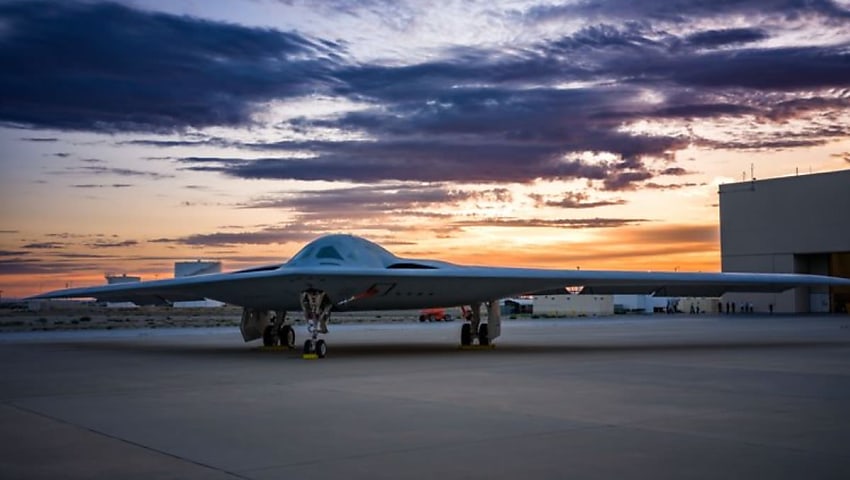The Institute of Public Affairs, Peter Jennings, and Strategic Analysis Australia have called for Japan to join ANZUS and for Australia to acquire B-21 Raiders as part of a recent research paper.
National Security and Australia’s Northern Defence is the first of six major research papers compiled by the group.
Authored by Peter Jennings, Michael Shoebridge, and Marcus Hellyer, the paper laid out a “blueprint” for the Australian government to deter conflict in the region and laid out a series of recommendations to protect Australia’s national sovereignty.
The paper recommended bringing Japan into ANZUS and enabling elements of the Japanese Self-Defence Forces to deploy in northern Australia.
An expansion of ANZUS would signal to regional partners that friendly nations can succeed by working together, encouraging others not to succumb to “Beijing’s bullying”, the authors note.
The report also highlighted the risk of delays in developing an Australian nuclear-powered submarine capability, encouraging the Australian government to develop a “Plan B” including the acquisition of B-21 Raider stealth bombers. The acquisition will be further boosted by hosting a contingent of US Raiders to reinforce Australian deterrence.
The acquisition will be crucial for regional stability as the B-21 can perform many of the same tasks as nuclear-powered submarines in a shorter time frame, the report notes.
Jennings explained that contingency planning was necessary as geopolitical uncertainty continues to grow, increasing the likelihood of conflict.
“Whichever party forms the next government in 2025, our worsening strategic outlook means that it is timely to take a fresh look at Australia’s defence needs and the difficult decisions that future government will face on strategy, budgets, alliances and partners, on understanding the threats we face and how we position our forces to meet them,” Jennings said.
“If there is a conflict over Taiwan, we think it highly unlikely that war can be localised to the island of Taiwan and the straits which separate it from the mainland. A significant war would draw in the US and neighbouring states Japan and the Philippines. Australia will be involved to some degree, however reluctantly.”
The group also recommended greater integration and collaboration with Australia’s regional partners, including the development of a Pacific Response Force, while reinforcing Australia’s ability to project power with the development of defence capabilities in Northern Australia as well as the Cocos and Christmas Islands and Norfolk Island.
This would be supported by an expansion of US deployments in Australia, increasing the US Marine Corps rotational presence to 16,000. The authors tout the increase is “the cheapest boost to deterrence Australia could possibly buy”.
The Institute of Public Affairs (IPA) executive director Scott Hargreaves warned that Australia remains unprepared for a regional conflict.
“Australia is facing its most challenging security environment since the Second World War, yet the country is dramatically underprepared for the possibility of conflict in the Indo-Pacific,” Hargreaves said.
“For well over a decade, governments of all persuasions have struggled to translate changing regional geopolitical considerations and rising security concerns into decisions and action. It is time for a reboot, one built on a sense of urgency, that can be delivered quickly,” Hargreaves said.
“Over the coming months, the IPA and Strategic Analysis Australia will publish research that contains concrete and practical recommendations that will be achievable in the next term of government.”


